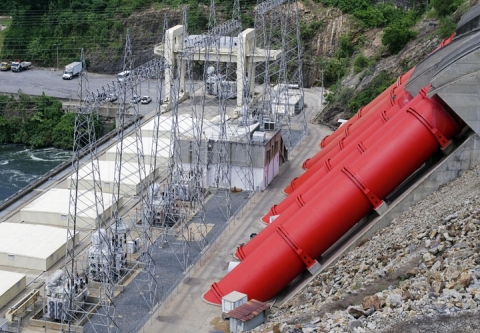1. Introduction
The term "force majeure" (or "superior force") comes from French law1 but is of much wider application in English law, where it has no settled or inherent meaning. While it can be said generally that force majeure clauses govern circumstances that are not within a contracting party's reasonable control, their actual effect will depend upon the proper construction of the precise wording used.2
In view of the fast-approaching prospect of Brexit3, this article considers how force majeure clauses operate under English law, including:
- The standard form of force majeure clause, common pitfalls and practical points to consider when negotiating and drafting force majeure clauses;
- An analysis of what "circumstances" and "reasonable control" mean for force majeure clauses; and
- How, if at all, force majeure clauses may: (i) be triggered by Brexit, and (ii) change in a post-Brexit landscape.
What happens in the event that a contract has no force majeure clause – where the more restricted common law doctrine of frustration may be applicable – is outside the scope of this article. However, the judiciary's attitude to the interaction between Brexit impact and the common law doctrine of frustration is addressed in detail in the recent decision of Canary Wharf (BP4) T1 Ltd & Ors v. European Medicines Agency4, discussed briefly below.
2. Drafting an effective force majeure clause
A contractual term which states only that the "usual force majeure clauses" apply has been held void for uncertainty5 and so parties need to consider carefully how force majeure is intended to apply to their contract. This is especially important with force majeure clauses where they will be interpreted by reference to the express words used and not by the parties' general intention6.
Per the example below, an English law force majeure clause will typically seek to exclude liability or excuse non-performance in certain circumstances (with a reasonable degree of specificity), followed by a catch-all phrase7:
"Neither party hereto shall be liable except under the indemnities provided herein and for the payment of monies due hereunder for failure to perform the terms of the Agreement when performance is hindered or prevented by strikes (except contractor induced strikes by contractor's personnel) or lockout, riot, war (declared or undeclared), act of God, insurrection, civil disturbances, fire, interference by any Government Authority or other cause beyond the reasonable control of such party8."
The essence of a ‘Force Majeure Event' is trying to predict the unpredictable. That is a highly personal objective – a product of the parties' negotiations and the lawyers' success in understanding their clients' business and associated risks. Noting the latter, there are some important drafting principles that should be borne in mind:
- First, timing. It is obviously unsatisfactory (and uncommercial) for contractual obligations to remain suspended indefinitely. As a matter of common law, a valid force majeure event may discharge the contract.[9] More commonly, however, force majeure clauses are drafted in such a way that they will have a time-limited effect falling short of total discharge. To ensure appropriate protection for each party's specific requirements, those drafting force majeure clauses may wish to: (i) include a specified time period, after which the contract terminates automatically and/or the parties may have an option to terminate10; and (ii) if terminated, provide for the terminating party to have some form of redress (for example, if pre-payment for non-delivered services or goods had been rendered).
- Secondly – in order to render a force majeure clause more useful than the otherwise intervening doctrines of frustration and impracticability – force majeure events should be defined precisely so as to capture industry-specific risks. As we go on to explain, economic hardship may be one such event, if negotiated as such, but is otherwise very unlikely to be deemed part of any general "catch-all" provision.
- Thirdly, a force majeure clause operates as an exclusion clause, excusing a party from performing its contractual obligations. It may therefore be subject to the reasonableness test under section 3 of the Unfair Contract Terms Act 1977 or the fairness and transparency requirements of the Consumer Rights Act 2015. A force majeure clause that is too widely drafted may be considered to be unreasonable and declared void, providing no effective protection to a party in practice and leaving it exposed to a claim for damages.
- Fourthly (particularly in view of (2) above)), parties should carefully consider how ordinary principles of contractual construction will apply. Namely, "the expression of one thing excludes other things" and listed words are "of the same kind."
Of these four principles, (2) clearly has the most substantive implications. Leaving Brexit aside for now, the sheer range of possible force majeure events explained below poses particular drafting difficulties.
3.Force majeure in practice
3.1 What "circumstances" might trigger a force majeure clause?
Force majeure events are popularly referred to in shorthand as "Acts of God". But the term encompasses much more than natural disasters.
In Lebeaupin v. Richard Crispin,[11] McCardie J undertook a useful review of previous authorities and, by way of example (and among others), contrasted war, strikes, actions of State (such as embargoes and licence refusal), all of which may amount to force majeure, with bad weather, funerals and the rising cost of fulfilling a contract.
The fact that certain events are not properly characterised as force majeure events is important. Whilst parties may make express provision for what happens if and when contractual performance becomes economically unfeasible12, in the absence of such provision, and while the ECJ has occasionally taken a different view,13 only events which prevent (rather than hinder or render more onerous) a contracting party's performance, are true force majeure events as a matter of English law. Under English law, an event which renders the contract more expensive to perform will not usually constitute "hindrance", much less lead to a conclusion of "prevention".14
It is also key that the force majeure event pleaded should be the sole cause of a party's alleged inability to perform its contractual obligations. In Seadrill Ghana Operations Ltd v. Tullow Ghana Ltd15the Defendant, Tullow, sought to invoke a force majeure clause due to a "drilling moratorium" imposed by the Ghanaian government. Seadrill claimed that Tullow was terminating for convenience as a collapse in oil prices had made Seadrill's business in hiring drilling rigs less commercially attractive. The Court ultimately held that – while the drilling moratorium was an established force majeure event on the facts – that was not the sole cause of Tullow's failure to fulfil its contractual obligations.
Alleged termination for convenience is also well illustrated by Thames Valley Power Ltd v. Total Gas & Power Ltd,16 where a force majeure clause in a gas supply contract – providing for release of contractual obligations in the event of inability to perform – was held not to bite where performance had merely become "economically more burdensome."17 Accordingly, parties generally cannot hope to invoke force majeure to escape the burden of a contract that remains physically and legally possible to perform, albeit unprofitable or less profitable.
In light of these decisions, it seems that the Court will be slow to assume force majeure relating to (and caused by) a Brexit scenario. Both Thames Valley and Seadrill suggest that without a very carefully drafted clause expressly covering Brexit and the future economic burden of contractual performance in a post-Brexit world, an English Court is highly unlikely to grant force majeure remedies in the event that Brexit renders contracts more expensive to perform18. Therefore, parties entering into contracts now should – absent an express Brexit trigger clause – try to mitigate its effects commercially within a contract.
Such steps are not unique to Brexit, however. Parties who invoke force majeure clauses are in any event under a duty to show: (i) that the relevant circumstances lay outside of their reasonable control; and (ii) that appropriate steps were taken in mitigation, both of which are described below.
3.2 Who may rely on a force majeure clause?
Only a contracting party may invoke a force majeure clause19. The standard language of a force majeure clause will typically refer to events beyond the reasonable control of either party. In bilateral contracts containing force majeure clauses, it is in principle open to either party to invoke that clause.
The position is more complex when there are multiple contracts between various parties, and a party is seeking to pass on liability "up / down the chain". Great Elephant Corporation v. Trafigura Beheer BV (The Crudesky)20 concerned a free on board contract for the sale of oil between a seller and a buyer. The seller had delegated to the terminal operator its contractual obligation to load the goods onto the ship; the terminal operator was later delayed in loading the goods due to events within its control. The Court of Appeal held that the seller could not successfully rely on the force majeure clause in circumstances where the relevant event was within its own contractual control. That applied even though that control flowed from the seller through to its sub-sub-sub agent: the terminal operator.
Although the force majeure clause as drafted applied to "either party" to the principal contract (i.e. the seller and the buyer), the Court found this effectively meant "or any party to whom the contractual performance of that party's obligation has been delegated by that party."21 Lord Justice Longmore found that an interpretation to the contrary would be "strict construction with a vengeance."22
The Crudesky case may take on particular significance for principal contracts governed by English law in a post-Brexit landscape. Should such contracts become legally impossible to perform because of legislative changes brought about by Brexit (e.g., the loss of passporting rights) the parties to the principal contract should not assume that they may successfully rely on the force majeure clause or that they may escape liability simply due to their delegation of contractual responsibilities.
The example given in The Crudesky, however, has limits. In particular, The Crudesky was distinguished from the earlier case of Coastal (Bermuda) Petroleum Ltd v. VTT Vulcan Petroleum SA (The Marine Star (No 2).23 In The Marine Star No 2, a seller successfully relied upon a force majeure clause to excuse itself from the fault of its supplier (its agent). Here, the Court of Appeal noted that The Marine Star No 2 concerned a straightforward sale of goods contract, therefore issues regarding contractual control / responsibility did not arise.24
Parties should therefore not assume that contracts of agency will relieve them of their own obligations, nor that an agency relationship will have any bearing on their own responsibilities under contract. For example, in The Marine Star No 2,25 the judge limited the scope of the force majeure clause as covering liability of the sellers alone (i.e. not the suppliers to the sellers). Lord Justice Saville referred to the specific language contained in the clause as indicative of the parties' intentions. He found that seller could not mean any seller in the chain, nor was it plausible that the words used would change simply because of the creation of further contracts.
Much will therefore turn on the contractual terms of the contract of agency itself. Parties may instead seek to limit their liability for the acts or omissions of their agents by including restrictive language in any agency agreement concluded between themselves and the relevant agent. Again, careful drafting to try and predict future events will be key.
3.3 "Reasonable control", causation and mitigation
There is no requirement under English law that the relevant circumstances invoking the force majeure were unforeseeable; rather the onus is on the invoking party to demonstrate circumstances beyond its reasonable control (or that of its agent)26. The Crudesky found that "reasonable control" ultimately meant exercising "one choice rather than another."27 In this respect, the question of "culpability" is neither determinative, nor relevant.
A crucial question in assessing a party's "reasonable control" is how closely the force majeure event relied upon is causally connected to the invoking party's non-performance.28 This is fact-specific and depends on the language of the clause.
What is clear, as a matter of English law, is that the force majeure event relied upon must be the sole cause for a party's non-performance.29 The Court will generally determine whether this is the case on the facts, by applying the usual "but for" test. It is in this context that a party's duty of mitigation becomes relevant: a party cannot simply rely on the fulfilment of relevant "circumstances" and the matter being beyond its "reasonable control". That is clear from Channel Island Ferries Ltd v. Sealink UK Ltd30 in which the Court of Appeal held that an invoking party could only rely on a clause referring to events beyond a party's reasonable control where the invoking party establishes that it took reasonable steps to avoid or mitigate the event and its consequences. Specifically, in Channel Island, consulting the unions before the agreement precipitating the strikes came into effect would have mitigated the effects of a nationwide strike affecting Sealink's ferry services.
Where relevant, a Court will also often look – as it recently did in Classic Maritime v. Limbungan Makmur31– to alternative modes of performance. There, the possibility of shipment from an alternative port was an important factor in considering whether a burst dam constituted a force majeure event. So, if alternative modes of performance are available and not adequately explored, it becomes less likely that the Court will consider a party's non-performance attributable solely to the alleged force majeure event.
From the case law, it seems that in the event Brexit affects a party's ability to deal with, for example, British suppliers due to changes regarding product standards, the English courts will not look favourably on the non-performing party not seeking alternate supply options.
In practice, therefore, the Court will often need to consider the issues of reasonable control, causation and mitigation in tandem for force majeure events.
4. Force majeure post-Brexit
Should the UK leave the European Union on 29 March 2019 as currently scheduled, numerous cross-border commercial contracts may be affected by fluctuations in exchange rates, tariffs and impending constraints on the free movement of goods, people and services. The uncertainty around Brexit and what will be in place (if anything) come exit day, has raised the question of whether Brexit will trigger a force majeure event that parties can rely on to excuse their non-performance of contractual obligations, or whether it will stretch and/or expand the existing limits of such clauses and the way parties approach them.
That question remains unanswered for now, and given the uncertainty as to the impact of Brexit, parties would be wise to negotiate the inclusion of express Brexit-related trigger events in contracts rather than hoping to rely on existing force majeure clauses. In the absence of a specific Brexit trigger clause, it seems parties will face an uphill struggle in seeking to persuade an English Court that Brexit operates as a trigger a standard force majeure clause.
One can hypothesise why that might be. It is particularly difficult, for example, to use Brexit to satisfy the "but for" test. A contracting party facing economic hardship in the wake of Brexit would need to show that: (a) Brexit was the sole cause of preventing performance; (b) as a result, the contract had become impossible (and not just more expensive and/or difficult) to perform; and (c) reasonable steps had been taken to mitigate its effects (such as entering into interest rate swaps or taking steps to protect against changes in the exchange rate).
Brexit also raises timing issues. In light of the EU Referendum having been foreshadowed in the Conservative party's 2010 manifesto – there is a question as to how the English Courts would treat the requirement that the force majeure event be "beyond the reasonable control" of either party. Is there, for example, authority for treating contracts entered into pre and post the 2010 manifesto differently? A "pre-manifesto" contractual party may seek to emphasise unforeseeability as a relevant factor to a force majeure event. Indeed, in the context of frustration, in Canary Wharf32 (supra.), Smith J commented that "foreseeability is no more than a factor to be taken into account." Yet, as The Crudesky highlights, foreseeability is largely redundant for the purposes of determining "reasonable control".33
From a commercial point of view – and noting that much of the judicial commentary on force majeure stresses a "common sense" approach – where would that leave a "post-manifesto" contractual party which, knowing of the British government's intention vis-à-vis the 2016 vote, and by default the possibility of Brexit, nevertheless failed to include contingencies in the contract? What will be the position for parties who are negotiating contracts now, even if they are seeking to define Brexit related events, when the positon is still uncertain as to what form Brexit will take come 29 March 2019?
Further hypotheses lead us to consider what other contractual clauses a party may invoke were it to argue Brexit as a general force majeure event. It seems to us unlikely that Brexit could fall within a catch-all provision such as "any act by any government" given: (i) principles of state sovereignty; (ii) the types of events likely to proceed such a sweep-up provision – i.e. civil war; rebellion; insurgency; and (iii) the further requirements for a bona fideforce majeure event discussed above.
5. Conclusion
While force majeure clauses can be of welcome use to parties if drafted correctly, whether their scope will expand post-Brexit remains as uncertain as the form Brexit may take on 29 March. Certainly parties may face difficulties in persuading the English Courts that Brexit is a frustrating event34, and the approach in Canary Wharf35(supra.) may prove useful guidance as to how the English courts may treat similar arguments for standard force majeure clauses. For those parties currently negotiating contracts in such an uncertain political landscape, the safest course would seem to be to include express Brexit termination provisions now, so that the precarious route of relying on force majeure (or indeed the common law doctrine of frustration) to escape contractual liability can be avoided.
Reproduced with permission from PLC Magazine. This article first appeared in the April 2019 issue of PLC Magazine (http://uk.practicallaw.com/resources/uk-publications/plc-magazine)
1 Article 1218 of the French Civil Code re-defined force majeure on 1 October 2016. For the first time, it codified the three essential elements that comprise force majeure: (i) externality (l'extériorité); (ii) unforeseeability (l'imprévisbilité); and (iii) inevitability (l'inévitabilité). The French concept of force majeure, inherited from a Roman law desire to restrict strict liability, originally centered around the quite restrictive concept of ‘irresistibility' but under Article 1218 has moved to a more flexible concept of ‘inevitability' (e.g., whether the effects were unavoidable) to respond to the demands of international trade.
2 Lebeaupin v. Richard Crispin and Company [1920] 2 K.B. 714, 702.
3 Given the terms of any Brexit deal are currently uncertain, this article assumes a so-called ‘hard Brexit' on 29 March 2019 where no withdrawal agreement has been reached.
4 Canary Wharf (BP4) T1 Ltd & Ors v. European Medicines Agency [2019] EWHC 335 (Ch), 20 February 2019.
5 British Electrical and Associated Industries (Cardiff) Ltd v Patley Pressings Ltd [1953] 1 W.L.R. 280.
6 Coastal (Bermuda) Petroleum Ltd v. VTT Vulcan Petroleum SA (The Marine Star (No 2) [1996] 2 Lloyd's Rep. 383, which we consider further below.
7 See Chitty on Contracts, Chitty (33rd Ed.), §15-153 Exemption Clauses.
8 Sonat Offshore SA v. Amerada Hess [1998] 1 Lloyds Rep 145.
9 See Frustration and Force Majeure, Treitel (3rd Ed.) 12-020 – Provisions for Non-Frustrating Events, Purpose and nature.
10 Bearing in mind (if applicable) the requirements of the Unfair Contract Term Act 1977 or the Consumer Rights Act 2015.
11 See Chitty on Contracts, Chitty (33rd Ed.), §15-163 – Exemption Clauses; Lebeaupin v. Richard Crispin and Company [1920] 2 K.B. 714
12 Frustration and Force Majeure, (3rd Ed.) Treitel §6-036 – Impractibility in English Law – Exceptional or special cases – Express provisions.
13 See, e.g., Internationale Handelsgesellschaft v. Einfuhr-und-Vorratsstelle [1970] E.C.R. 1125.
14 Tennants (Lancashire) Ltd v. C.S. Wilson & Co Ltd [1917] A.C. 495; see also National Bank of Kazakhstan, The Republic of Kazakhstan v. The Bank of New York Mellon SA/NV, London Branch [2018] EWCA Civ 1390 at [35].
15 Seadrill Ghana Operations Ltd v. Tullow Ghana Ltd [2018] EWHC 1640.
16 Thames Valley Power Ltd v. Total Gas & Power Ltd [2005] EWHC 2208.
17 Ibid at 50(1).
18 Indeed, a similar approach was taken by the Court in Canary Wharf (BP4) T1 Ltd & Ors v. European Medicines Agency [2019] EWHC 335 (Ch), 20 February 2019 in relation to an argument that Brexit had frustrated the contract (a lease) between the parties.
19 References to ‘party' in this article should be understood as being a reference to one of the contractual parties.
20 Great Elephant Corporation v. Trafigura Beheer BV (The Crudesky) [2013] 2 All E.R. (Comm) 992.
21 Ibid at [33].
22 Ibid at[30].
23 Coastal (Bermuda) Petroleum Ltd v. VTT Vulcan Petroleum SA (‘The Marine Star') [1996] 2 Lloyd's Rep. 383.
24 Great Elephant Corporation v. Trafigura Beheer BV (The Crudesky) [2013] 2 All E.R. (Comm) 992 [39].
25 Coastal (Bermuda) Petroleum Ltd v. VTT Vulcan Petroleum SA (‘The Marine Star') [1996] 2 Lloyd's Rep. 383.
26 Chitty on Contracts, Chitty (33rd Ed.), §15-164 – Exemption Clauses. See also: Great Elephant Corporation v. Trafigura Beheer BV (The Crudesky) [2013] 2 All E.R. (Comm) 992 [32].
27Great Elephant Corporation v. Trafigura Beheer BV (The Crudesky) [2013] 2 All E.R. (Comm) 992 [28].
28 National Bank of Kazakhstan, The Republic of Kazakhstanv.The Bank of New York Mellon SA/NV, London Branch [2018] EWCA Civ 1390 at [41]-[42].
29 Intertradex v Lesieur [1978] 2 Lloyd's Reports 509; see also Seadrill Ghana Operations Limited v. Tullow Ghana Limited [2018] EWHC 1640 (Comm) [72]-[74]; Seadrill Ghana Operations Limited v. Tullow Ghana Limited [2018] EWHC 1640 (Comm).
30 Channel Island Ferries Ltd v. Sealink UK Ltd [1988] 1 Lloyd's Rep 323.
31 Classic Maritime v. Limbungan Makmur [2018] EWHC 2389, at [66]. This is due to be heard on appeal on 11 June 2019.\
32 Canary Wharf (BP4) T1 Ltd and ors. v European Medicines Agency [2019] EWHC 355 (Ch) [211].
33 Great Elephant Corporation v. Trafigura Beheer BV (The Crudesky) [2013] 2 All E.R. (Comm) 992 [31]-[32].
34 Canary Wharf (BP4) T1 Ltd & Ors v. European Medicines Agency EWHC 335 (Ch), 20 February 2019
35 Canary Wharf (BP4) T1 Ltd and ors. v European Medicines Agency [2019] EWHC 355 (Ch) [211].
Daisy Wetherill assisted in the development of this publication.
This publication is provided for your convenience and does not constitute legal advice. This publication is protected by copyright.




























































 View full image
View full image  View full image
View full image 







































